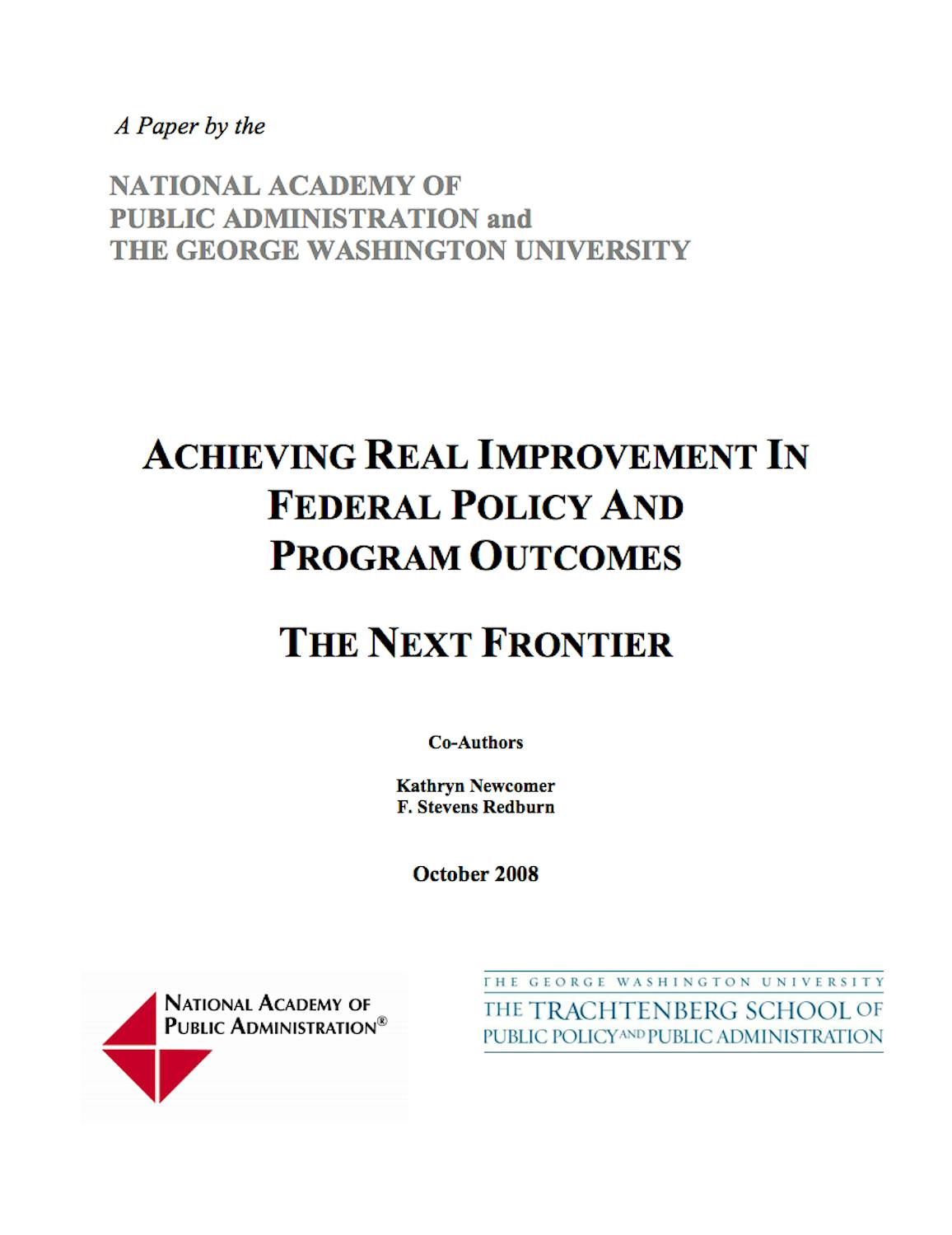
Achieving Real Improvement in Federal Policy and Program Outcomes: The Next Frontier
The purpose of this paper is to address the following questions: Who should be responsible for guiding the federal government’s performance in the next Administration? How can the next President achieve real improvements in federal policy outcomes?
Click the button below to view the View Study Report.
View ReportKey Findings
Since enactment of the Government Performance and Results Act (GPRA) in 1993, the efforts of successive Administrations have built a legacy of assets useful to the next Administration: an armature of strategic plans and performance measures supported by an infrastructure of staff and processes in the agencies built incrementally and now quite sophisticated. These have provided the executive branch with enhanced capacity to drive improved results at a time when there will be a growing premium on making better use of budget resources.
Despite these advances, our review of the experiences of those involved in managing program assessment and performance improvement at various levels across government suggests that these efforts have led, to date, to only limited improvement in government programs. This has raised questions about their cost-effectiveness, that is, about whether the time and energy devoted to assessing performance is justified by the returns to date in improving performance.
The advice provided here reflects lessons captured during the authors’ discussions with diverse staff and officers both in OMB and in the agencies. Synthesizing these views and our own, we offer a set of goals and recommended strategies to improve government performance in the next Administration.
Recommendations
The advice provided in this report reflects lessons captured during the authors’ discussions with diverse staff and officers both in the Office of Management and Budget (OMB) and in various agencies. Synthesizing these views and our own, we offer a set of goals and recommended strategies to improve government performance in the next Administration, including:
- The President must set the standard and demand of his cabinet and senior officials that performance be a high priority;
- At the highest level, priorities for program assessment should be set so that assessments focus mainly on programs important to the President’s major policy priorities;
- Agency heads, not the OMB, must lead in improving performance, and agency executives must be held accountable for improving outcomes;
- Gains in transparency and standards for assessing how well programs perform should be preserved and built on; and
- The analytic and reporting burdens of the assessment process on both OMB and the agencies should be reduced and better targeted.